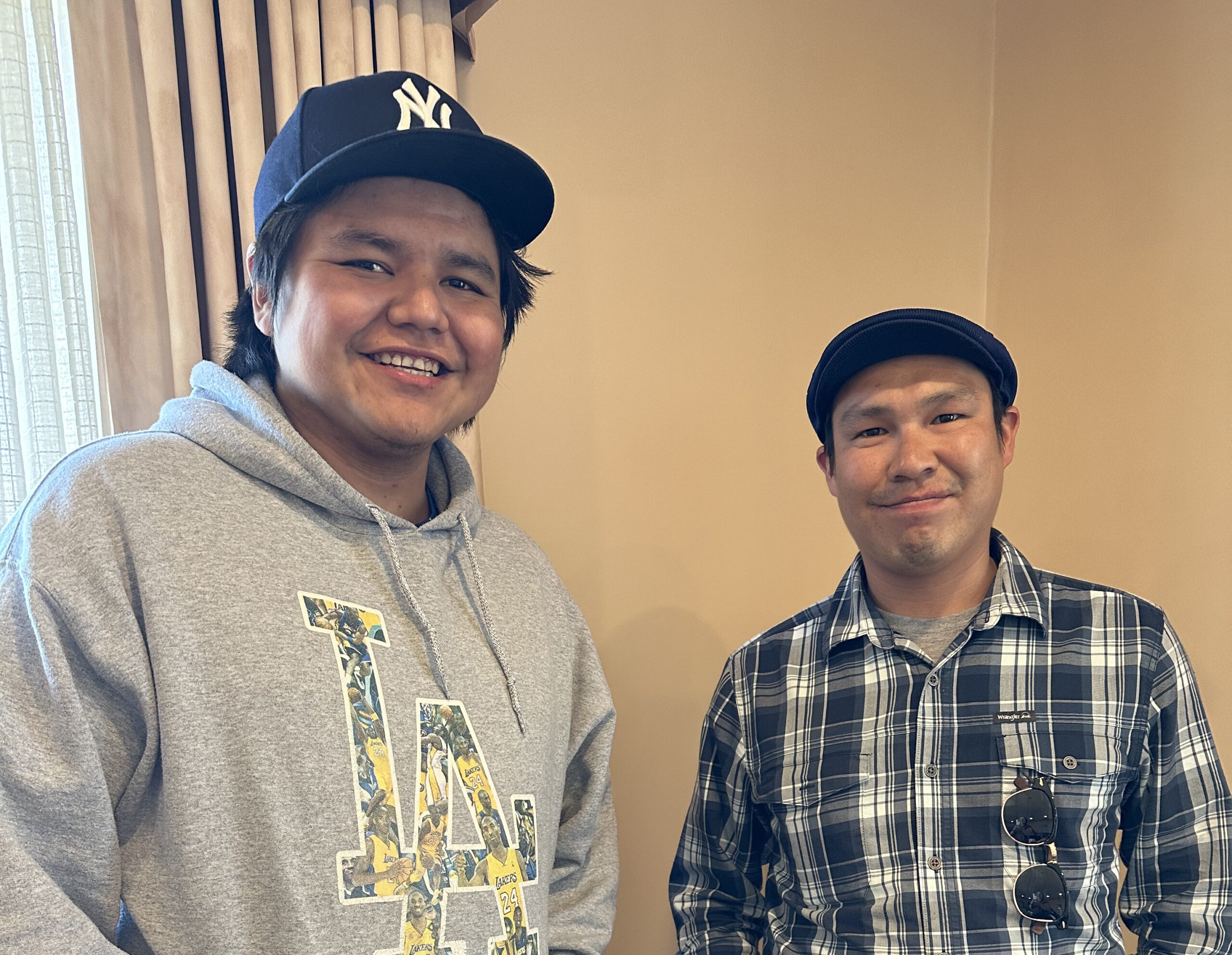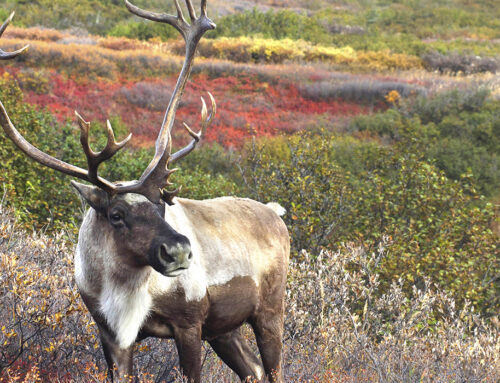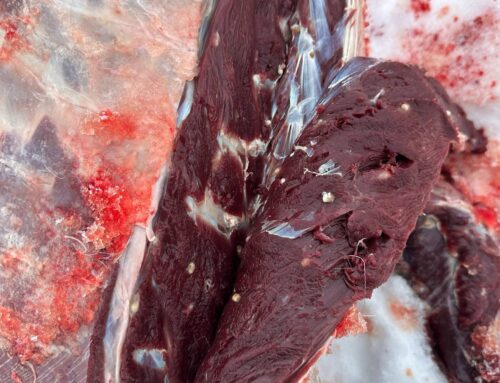May 30, 2023 – Board members, guests, and observers from Nunavut, northern Manitoba, northern Saskatchewan, and Northwest Territories made their way to Yellowknife, NWT May 16-18 for the Beverly and Qamanirjauq Caribou Management Board (BQCMB)’s spring meeting. It was the Board’s first meeting in NWT since 2013.
Climate change was a key issue, and the meeting took place as Hay River and Kátł’odeeche First Nation, NWT residents were being evacuated from their homes due to active forest fires. Many BQCMB members and observers expressed growing concern about the potential effects of climate change on the caribou herds and their habitat.
Brad Woodworth, an Ecologist from Government of Northwest Territories Environment and Climate Change, shared a presentation explaining how warming temperatures might lead to increased insect harassment, changing snow and ice conditions that may affect the migration routes, and reduced access to food in winter due to extreme weather, such as rain-on-snow events, and changes in tundra vegetation like more shrubs. Climate change is likely to mean many changes for migratory caribou, some positive and some negative.
Changes are already being observed by people who rely on the caribou and the land. Elder Doris Enzoe, from Lutsel K’e Dene First Nation said, “It’s so hot now, the Elders want to be by the lake for gatherings. Even our water is getting warmer. It’s nice information, but I want to know what you’re going to do with it, 30 years, 20 years from now…because if I come back and we’re still sitting here, you’ll know climate change has already happened. We should be teaching this in schools, maybe they’ll learn from it.”
Woodworth stressed it’s important to ensure caribou habitats, seasonal ranges, and protected areas are connected so the herds can move between them effectively. “Things like roads and developments can disconnect these habitats, which makes it harder for wildlife to move throughout the landscape and adapt to a changing environment.”
Traditional knowledge and observations by Indigenous Peoples are essential for identifying changes to caribou and the land and making decisions that affect caribou, but caribou-using communities are finding it harder to find youth who want to carry on traditional ways of life. BQCMB Chair Earl Evans, a member of the Northwest Territory Métis Nation from Fort Smith, said “We go looking for youth to go hunting, and they’re sitting at home and don’t want to go outside.” That is why the BQCMB regularly invites Indigenous youth to attend its meetings to learn and share information about caribou.
Youth representative Quinn Rabesca (pictured at left), a Tlicho citizen from Behchokǫ̀, NWT told the BQCMB he has loved hunting since he was a child. “My grandpa used to drag me out. He’d say, ‘You’re going to be the future provider for this family’, so he’d pack my stuff and say, ‘let’s go’. Now I do that with my friends. I try to encourage them to come with me hunting. I don’t like them sitting at home.”
Roger Catholique (pictured at right), a youth from Lutsel K’e Dene First Nation, NWT also learned from his grandpa. “He taught me to respect the land and the animals, the caribou. There’s a few my age that go out, not so much though. I always try to tell people to not waste meat; to have respect for animals, for nature, and one another.”
These future leaders have also observed the effects of climate change. “Climate is really different; it’s warmer than before,” says Catholique. “I think the main disturbance is humans; we’re the apex predators of the world here. We have to make a change right now before it’s too late. Why wait until the last minute to do the change; why not take action now? That’s what I say.”





